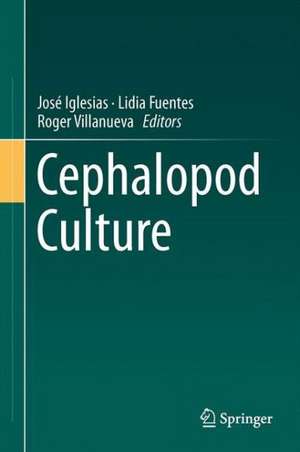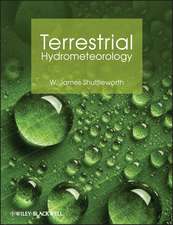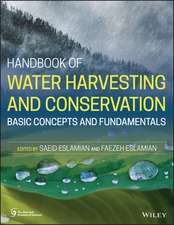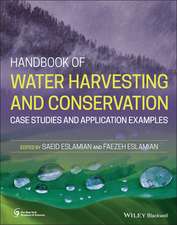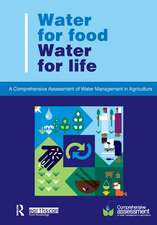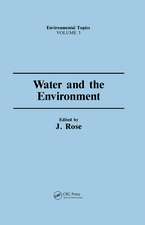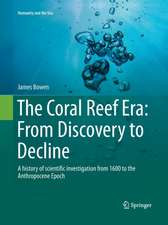Cephalopod Culture
Editat de José Iglesias, Lidia Fuentes, Roger Villanuevaen Limba Engleză Hardback – 9 apr 2014
| Toate formatele și edițiile | Preț | Express |
|---|---|---|
| Paperback (1) | 801.87 lei 38-44 zile | |
| SPRINGER NETHERLANDS – 3 sep 2016 | 801.87 lei 38-44 zile | |
| Hardback (1) | 960.78 lei 6-8 săpt. | |
| SPRINGER NETHERLANDS – 9 apr 2014 | 960.78 lei 6-8 săpt. |
Preț: 960.78 lei
Preț vechi: 1171.68 lei
-18% Nou
Puncte Express: 1441
Preț estimativ în valută:
183.87€ • 191.25$ • 151.79£
183.87€ • 191.25$ • 151.79£
Carte tipărită la comandă
Livrare economică 12-26 aprilie
Preluare comenzi: 021 569.72.76
Specificații
ISBN-13: 9789401786478
ISBN-10: 940178647X
Pagini: 494
Ilustrații: XIII, 494 p. 125 illus., 53 illus. in color.
Dimensiuni: 155 x 235 x 25 mm
Greutate: 0.89 kg
Ediția:2014
Editura: SPRINGER NETHERLANDS
Colecția Springer
Locul publicării:Dordrecht, Netherlands
ISBN-10: 940178647X
Pagini: 494
Ilustrații: XIII, 494 p. 125 illus., 53 illus. in color.
Dimensiuni: 155 x 235 x 25 mm
Greutate: 0.89 kg
Ediția:2014
Editura: SPRINGER NETHERLANDS
Colecția Springer
Locul publicării:Dordrecht, Netherlands
Public țintă
ResearchCuprins
PART I: Introduction.- PART II: Main cultured cephalopods.- PART III: Conclusions and future trends.
Notă biografică
José Iglesias obtained his PhD degree in biology from the University of Santiago in 1982. He is an expert on Aquaculture, starting his research work in the late 70s. He has 30 years experience on ecology, biology, culture and enhancement of marine fish, octopus and spider crab. He published the first works carried out in Spain about species of great interest such us turbot, common octopus, spider crab, European hake and other pioneering studies about the ecology of demersal fishes and the stock enhancement in the Galician rías. He began to study cephalopods in 1996 when he obtained surprising growth rate of captured Octopus vulgaris individuals under culture conditions. Since then most of his research effort has been aimed at the aquaculture of this species; and one of his major achievements was to complete its cycle of life in captivity for the first time at experimental conditions in 2001. José Iglesias has also carried out a very intensive work of international cooperation on this subject, especially in Latin America.
Roger Villanueva obtained his PhD degree in biology from the University of Barcelona in 1992. During this period he studied the taxonomy and life cycles of cephalopods from the Benguela Current boarding on fishing vessels for varying periods totaling more than a year. This was when his interest in the sea began and his curiosity about this group of molluscs arose. Back then he always worked with dead animals collected mainly from bottom trawlers. Thus, aiming to observe live cephalopods and to known their biology and behaviour from controlled laboratory conditions he conducted his postdoctoral studies at the Observatoire Océanologique de Banyuls (1992-94) in collaboration with Dr Sigurd v. Boletzky. Here was where his interest toward understanding the biology of the embryos and larvae of cephalopods started, as from the first day he saw thousands of tiny octopus hatchlings swimming in a tank. Thissubject is his main research interest until now, trying to identify how environmental factors influence the early life of cephalopods. Since 2001 he is tenured scientist at the Institut de Ciències del Mar, CSIC, Spain.
Lidia Fuentes obtained her PhD degree in Sa Sciences from the University of Vigo in 2005, defending a thesis entitled “Culture methods, marking, tagging and restocking experiences of Octopus vulgaris”. She has worked in José Iglesias team since 1998 at the Spanish Institute of Oceanography and all her career has been linked to cephalopod culture.
Roger Villanueva obtained his PhD degree in biology from the University of Barcelona in 1992. During this period he studied the taxonomy and life cycles of cephalopods from the Benguela Current boarding on fishing vessels for varying periods totaling more than a year. This was when his interest in the sea began and his curiosity about this group of molluscs arose. Back then he always worked with dead animals collected mainly from bottom trawlers. Thus, aiming to observe live cephalopods and to known their biology and behaviour from controlled laboratory conditions he conducted his postdoctoral studies at the Observatoire Océanologique de Banyuls (1992-94) in collaboration with Dr Sigurd v. Boletzky. Here was where his interest toward understanding the biology of the embryos and larvae of cephalopods started, as from the first day he saw thousands of tiny octopus hatchlings swimming in a tank. Thissubject is his main research interest until now, trying to identify how environmental factors influence the early life of cephalopods. Since 2001 he is tenured scientist at the Institut de Ciències del Mar, CSIC, Spain.
Lidia Fuentes obtained her PhD degree in Sa Sciences from the University of Vigo in 2005, defending a thesis entitled “Culture methods, marking, tagging and restocking experiences of Octopus vulgaris”. She has worked in José Iglesias team since 1998 at the Spanish Institute of Oceanography and all her career has been linked to cephalopod culture.
Textul de pe ultima copertă
Cephalopod Culture is the first compilation of research on the culture of cephalopods. It describes experiences of culturing different groups of cephalopods: nautiluses, sepioids (Sepia officinalis, Sepia pharaonis, Sepiella inermis, Sepiella japonica Euprymna hyllebergi, Euprymna tasmanica), squids (Loligo vulgaris, Doryteuthis opalescens, Sepioteuthis lessoniana) and octopods (Amphioctopus aegina, Enteroctopus megalocyathus, Octopus maya, Octopus mimus, Octopus minor, Octopus vulgaris, Robsonella fontaniana). It also includes the main conclusions which have been drawn from the research and the future challenges in this field. This makes this book not only an ideal introduction to cephalopod culture, but also a valuable resource for those already involved in this topic.
Caracteristici
Provides details on methods used in the different stages of cephalopod culture: obtaining and maintaining brood stock, the spawning process, larval rearing and on growing Includes recent breakthroughs (i.e. successful rearing of large octopus hatchlings on a wholly artificial diet of squid paste) Emphasis on the additional economic benefits of cephalopod culture (such as restocking) Contains a wealth of information on cephalopod constraints and bottlenecks in the culturing process Includes supplementary material: sn.pub/extras
